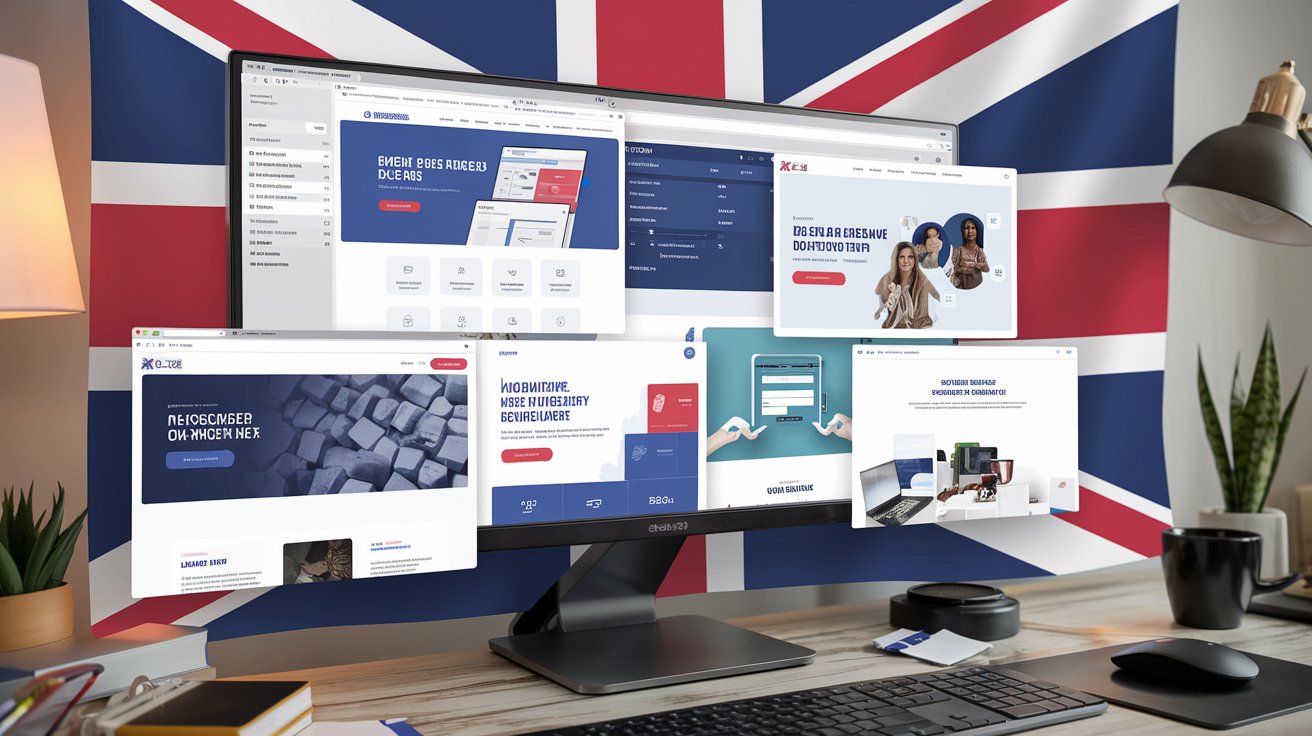Website development in the UK is an ever-evolving field that plays a pivotal role in the success of modern businesses. But what exactly is website development, and why is it so crucial for UK companies today? Let’s dive into the world of web design, coding, and what makes a standout site in this region.
The Current State of Website Development in the UK
The UK has one of the most vibrant digital markets in the world, with a massive shift towards online presence in recent years. With the rapid growth of eCommerce and online services, UK businesses are increasingly investing in websites that not only showcase their brand but also serve as their primary sales and marketing platforms.
Companies across the UK are realizing that having a strong digital footprint is not a luxury—it’s essential. Whether you’re a small bakery in London or a tech startup in Manchester, a well-designed website can make or break your business. The UK’s competitive market means that standing out requires more than just a pretty homepage. You need functionality, SEO, and a strategy to captivate visitors.
Key Components of Website Development
Frontend Development
In web development, the front end is what users see and interact with. Think of it as the ‘face’ of your website. In the UK, developers commonly use HTML, CSS, and JavaScript to create responsive, user-friendly websites. A solid front end ensures that your site looks good on all devices, from desktop computers to mobile phones.
Backend Development
While the frontend is the face, the backend is the brain of your website. Backend development deals with server-side technologies like PHP, Node.js, and databases such as MySQL. A strong backend ensures that your site runs smoothly, handling user requests, processing data, and managing content.
Full-Stack Development
Full-stack developers handle both the frontend and backend. This is a highly sought-after skill in the UK market, as it allows developers to create seamless, fully integrated websites.
Importance of Responsive Design
With the UK boasting one of the highest smartphone usage rates globally, having a responsive website is critical. A responsive design ensures that your website works well on any device—whether it’s a smartphone, tablet, or desktop. This mobile-first approach has become a standard in UK web development, especially with more people browsing and shopping on their phones.
User experience is paramount in the UK market, and a responsive, accessible website ensures that no visitor feels left out.
Popular Website Platforms in the UK
WordPress
WordPress is the go-to platform for many UK businesses. Its flexibility, ease of use, and wide range of plugins make it perfect for small businesses, bloggers, and even larger enterprises.
Shopify
Shopify dominates the UK’s eCommerce market. For businesses looking to sell products online, Shopify offers a ready-made solution that’s easy to set up and manage.
Wix and Squarespace
These platforms are ideal for smaller businesses that need a quick, user-friendly solution. Both Wix and Squarespace offer drag-and-drop functionality, which makes it easy for non-developers to create professional-looking websites.
SEO in Website Development

Search Engine Optimization (SEO) is essential in web development, especially in the UK, where competition for visibility is fierce. SEO ensures that your website ranks well on search engines like Google.
From keyword research to optimizing images and meta tags, SEO is an ongoing effort. UK businesses must invest in SEO to ensure their websites are found by potential customers.
Website Security and GDPR Compliance
Cybersecurity is a huge concern in the UK. With the rise of online transactions, businesses need to prioritize secure websites to protect user data. UK laws, such as the GDPR (General Data Protection Regulation), require businesses to be transparent about how they collect, store, and use data.
Ensuring your website complies with GDPR is crucial. This includes having a clear privacy policy, obtaining user consent, and using secure SSL certificates.
Cost of Website Development in the UK
The cost of website development in the UK varies based on several factors—such as complexity, features, and whether you hire a freelancer or an agency. On average, a simple website may cost between £500 and £2,000, while more complex eCommerce sites can go up to £10,000 or more.
Hiring a Website Developer in the UK
When hiring a developer in the UK, you’ll need to decide between freelancers and agencies. Freelancers often offer more flexibility and lower costs, while agencies provide a more comprehensive service, covering everything from design to maintenance.
Look for developers with a strong portfolio, relevant experience, and an understanding of your specific needs.
Website Maintenance and Support
Once your website is live, it’s not a set-it-and-forget-it scenario. Regular maintenance is essential to keep your website running smoothly and securely. UK businesses often invest in ongoing support services to handle updates, security patches, and performance improvements.
Trends in UK Website Development
The future of website development in the UK is exciting. AI, automation, and machine learning are being integrated into websites to create more personalized user experiences. Developers also focus on sustainability by optimizing websites to use fewer resources, benefiting both the environment and performance.
Conclusion
Website development in the UK is a fast-paced, innovative industry shaping the business’s future. Whether building a small website or a complex online store, understanding the key components, trends, and costs is crucial. A well-developed website can propel your business to new heights, helping you reach more customers and improve your digital presence.

Frequently Asked Questions
What is the average time for website development in the UK?
It typically takes 4–12 weeks, depending on the complexity of the website.
How much does a website cost in the UK?
Prices vary, but a basic website can cost around £500-£2,000, while complex websites may cost £10,000 or more.
Why is responsive design important in UK websites?
With high mobile usage, responsive design ensures that websites work seamlessly on all devices, improving user experience and engagement.
What are the best platforms for eCommerce in the UK?
Shopify is the leading eCommerce platform, with other options like WooCommerce and Magento being popular too.
How can I ensure my website is GDPR-compliant?
Implement clear privacy policies, use secure SSL certificates, and obtain user consent for data collection.


